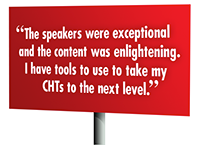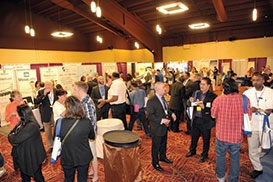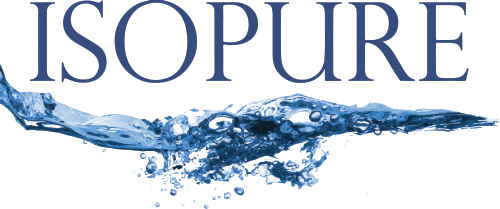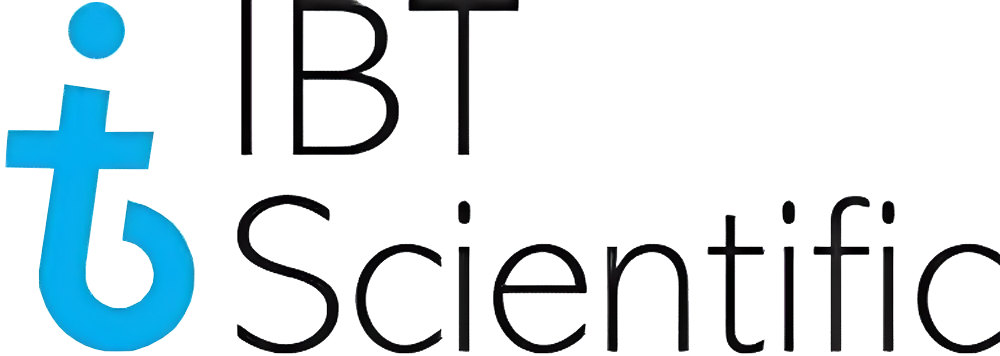21-24 March 2016, Tropicana Hotel, Las Vegas, NV
2016 Contact Hour Certificates
You can print your own certificate by going to www.mtsreport.com/nant/16 Enter your last name as it appears on your badge and the four digit number on your badge. You can look up your name to get your four digit number here.
2016 Symposium Presentations
Pre-Symposium Workshops
- Program Development John Sweeny
- Presentation Skills John Sweeny
Symposium
- Product Development: Meeting Needs Beyond the Checklist Curtis Woods
- Dialysis Reimbursement: How Has it Changed? What Does the Future Hold? Anthony Messana
- Disaster Preparedness Lawrence K. Park
- Infection ControlHeather Weirich
- Dialyzer Reuse Priti Patel
- Biofilm: Where Does it Come From and Why is it Such a Problem Jo-Ann Maltais
- Fluid Management During Dialysis Anne Diroll
- Dialysate Composition: Accuracy of the PrescriptionJoe Johnston
- Vascular Access Dr. Gregg Miller
- Precipitation Reactions in Dialysis John Sweeny
- Carbon and Chlorine Issues in Hemodialysis Water Treatment Systems Burke West
- Hemodialysis Modalities - Which is Best for Your Patient Dori Schatell
- Complex Water Treatment Problem Solving Jim Baker
- Bringing Empathy to the Dialysis Facility Robin Siegal
- From a Patient's Perspective
- Going Beyond the Checklist Susan Novak and Wisconsin Chapter
2016 Program Highlights
Exhibitor Information
- Click here for the Exhibitor Prospectus and Contract (878 KB PDF form)
Session Information
Workshops | General Sessions | Concurrent Session Tracks
Click on the ![]() symbol next to each session below in order to download the event to the calendar on your device.
symbol next to each session below in order to download the event to the calendar on your device.
2016 Workshops
We offer three pre-symposium workshops on Monday:
 The Professional Development Workshop will present an overview of skills and techniques the NCT or NBT needs to climb his or her career ladder.
The Professional Development Workshop will present an overview of skills and techniques the NCT or NBT needs to climb his or her career ladder. MarCor will offer a workshop on Water Treatment that will provide an overview of a wide range of water treatment issues and solutions.
MarCor will offer a workshop on Water Treatment that will provide an overview of a wide range of water treatment issues and solutions. Fresenius Medical Care will offer a workshop providing opportunities for technicians to gain a deeper understanding about troubleshooting their dialysis machines.
Fresenius Medical Care will offer a workshop providing opportunities for technicians to gain a deeper understanding about troubleshooting their dialysis machines.

There is a $25 charge to attend these workshops, which include refreshment breaks (but not lunch). To ensure your participation, you must register in advance. Workshops begin at 8:30 am and end by 4:00 pm, with a break for lunch. All workshops offer a full day of education and up to 8.3 contact hours. Space is limited – register NOW!
General Sessions
Tuesday
-
 Patient Relations – Relating Patiently – Patti Wood, MA, CSP
Patient Relations – Relating Patiently – Patti Wood, MA, CSP
- Do you want to use the power of the first impression to understand your patient’s personality as quickly as possible? Would you like to know five ways to hear a patient?Have you ever wondered what a patient was thinking but not saying? Do you know the secret differences between the way male and female patients share their concerns and symptoms? Do you want to gain the eyes and attention of your patients? Have you wanted to establish rapport quickly to immediately put your patient at ease? Do you want to know two things to do when someone isn’t listening to you? This session will fulfill your needs!
 Product Development: Meeting Needs Beyond the Checklist – Curtis Woods, Renal Therapy Group, Fresenius Medical Care NA
Product Development: Meeting Needs Beyond the Checklist – Curtis Woods, Renal Therapy Group, Fresenius Medical Care NA
- Machine technology and supplies have changed over the years, due in no small part to how researchers have moved beyond the checklist to find and develop the best products that they can. This session will focus on how new product development depends on moving beyond the checklist.
 Dialysis Reimbursement: How Has it Changed? What Does the Future Hold? – Anthony Messana, Executive Director for the Dialysis and Transplant Program, St. Joseph Hospital, in Orange, CA
Dialysis Reimbursement: How Has it Changed? What Does the Future Hold? – Anthony Messana, Executive Director for the Dialysis and Transplant Program, St. Joseph Hospital, in Orange, CA
- How your dialysis unit gets reimbursed for patient care has a huge impact on everything your unit does. This session will explain recent changes in reimbursement policies and what is anticipated for the future. Understanding the finances of your unit will help you be a better part of the CKD patient care team.
 Disaster Preparedness – Larry Park, MSPH, CHCM, CPEA, CWCP, CNCI, RPIH, Vice President – Corporate Health, Safety, Environmental Affairs, Engineering, Security & Risk Management, Fresenius Medical Care North America
Disaster Preparedness – Larry Park, MSPH, CHCM, CPEA, CWCP, CNCI, RPIH, Vice President – Corporate Health, Safety, Environmental Affairs, Engineering, Security & Risk Management, Fresenius Medical Care North America
- Disasters come in many forms – fires, floods,riots, snow – and yet your clinic still needs to provide dialysis to your patients. This session focuses on how you can be prepared for those things that you know will happen –and those you haven’t even considered.
 Chemical Reactions in Dialysis – John Sweeny, BS
Chemical Reactions in Dialysis – John Sweeny, BS
- The entire body’s functions can be described using chemical equations. Most of these are quite complex and hard to understand.Some however are not, and once understood explain why we dialyze our patients the way we do.
 Who is Watching? Who is Hacking? – Anthony Giandomenico, Senior Security Strategist, Fortinet
Who is Watching? Who is Hacking? – Anthony Giandomenico, Senior Security Strategist, Fortinet
- As the cyber security expert with Fortinet FortiGuard Labs, Anthony delivers knowledge, tools and methodologies to properly demonstrate advanced threat concept and defense strategy. This session will provide you with information about how your unit’s computer network could be hacked and how to be sure both it and your personal systems can be safe from unwanted users and followers.
Thursday
 Bringing Empathy to the Dialysis Facility – Robin Siegal, LCSW, Adjunct Lecturer, USC School of Social Work
Bringing Empathy to the Dialysis Facility – Robin Siegal, LCSW, Adjunct Lecturer, USC School of Social Work
- Technicians and technologists work with individuals with chronic illness. Some patients you like, some are challenging – but how do you identify with any patient to give them the empathetic care that will enhance their treatment – and their life? This session will include exercises to help you understand how to work with all your patients.
 From a Patient’s Perspective – Troyce Crucchiola
From a Patient’s Perspective – Troyce Crucchiola
- As a dialysis patient, Troyce has been stuck more than 3,000 times… and has never gotten sick from a water problem or any kind of bio system failure. So, Troyce understands how important both NCTs and NBTs are to his life-sustaining treatment. Troyce first spoke at the NANT Symposium in 2003, and received rave reviews from the participants.
 Going Beyond the Checklist – Susan Novak, BS, CHT, Supervisor, Wisconsin Dialysis, Inc. and the Kidney Kleaners Chapter
Going Beyond the Checklist – Susan Novak, BS, CHT, Supervisor, Wisconsin Dialysis, Inc. and the Kidney Kleaners Chapter
- Our charge to you is to continue to go beyond your daily checklist. This session will help you incorporate what you have learned in the last three days and provide action plans of how you can take this information back to your dialysis clinic to share with your colleagues.
Concurrent Session Tracks
Wednesday
Clinical
 Infection Control – Heather Weirich, BSN, RN, CNN, Independent Dialysis Foundation
Infection Control – Heather Weirich, BSN, RN, CNN, Independent Dialysis Foundation
- Control of infection in a dialysis unit is critical to its success. With her membership on the Network 5 (MARC) Infection Prevention Subcommittee and Medical Review Board as well as the CDC Dialysis BSI Prevention Collaborative Steering Committee, Heather Weirich has a passion for infection control.
 Fluid Management During Dialysis – Anne Diroll, RN, CNN
Fluid Management During Dialysis – Anne Diroll, RN, CNN
- Fluid overload (FO) is common in hemodialysis patients and leads to complications such as hypertension, left ventricular disease, myocardial stunning, with its associated fibrosis, arrhythmias, heart failure, and sudden cardiac death. If better fluid management resulted in just a 20% reduction in hospitalizations your clinic would not only improve health and outcomes for dialysis patients, it would also demonstrate a commitment to continuous Quality Assurance Performance Improvement (QAPI).
 Vascular Access – Gregg Miller, MD, Vice President, Operations, Fresenius Vascular Care
Vascular Access – Gregg Miller, MD, Vice President, Operations, Fresenius Vascular Care
- This session will focus on proper needle placement, AV fistula button holes and what does a good fistula/graft sound and feel like?
 Hemodialysis Modalities – Which is Best for Your Patient? – Dori Schatell, MS, Executive Director, Medical Education Institute
Hemodialysis Modalities – Which is Best for Your Patient? – Dori Schatell, MS, Executive Director, Medical Education Institute
- There is a wide range of modalities for your CKD patients – but how can you help them pick the one that will best meet their needs? This session will review the modalities and provide helpful ideas of how to help your patients make informed choices.
Biomedical
 Biomicrobiology and Reuse – Priti R. Patel, MD, MPH, CDC Division of Healthcare Quality Promotion
Biomicrobiology and Reuse – Priti R. Patel, MD, MPH, CDC Division of Healthcare Quality Promotion
- CDC is conducting bloodstream infection (BSI) surveillance and promoting BSI prevention among hemodialysis facilities. The CDC Dialysis BSI Prevention Collaborative is a partnership of freestanding and hospital based outpatient dialysis facilities across the country aimed at preventing BSIs in hemodialysis patients. CDC provides evidence-based prevention guidelines and access to the National Healthcare Safety Network, a surveillance system that allows facilities to track infections.
 Biofilm: Where Does it Come from and Why is it Such a Problem? – JoAnn B. Maltais, Ph.D., Maltais Consulting
Biofilm: Where Does it Come from and Why is it Such a Problem? – JoAnn B. Maltais, Ph.D., Maltais Consulting
- Endotoxins are small, stable, bacterially derived hydrophobic molecules which can easily contaminate labware. Thorough cleanliness is required to substantially reduce endotoxin levels. This session will address methods, cultures and sampling techniques for controlling biofilm.
 Dialysate Composition: Accuracy of the Prescription – Joe Johnston, Fresenius Medical Care
Dialysate Composition: Accuracy of the Prescription – Joe Johnston, Fresenius Medical Care
- While NBTs may think that they do not have direct contact with the CKD patient, the composition of the dialysate is critical to ensuring the nephrologist’s prescription is being accurately delivered to the patient. This session will review the steps to be taken to ensure quality care for the CKD patient.
 Chemical Reactions in Dialysis: Precipitation – John Sweeny, BS
Chemical Reactions in Dialysis: Precipitation – John Sweeny, BS
- From the coating of pipe walls in water distribution lines to the improper building of bones in the body, precipitation is something to be avoided. Understanding what causes precipitation and how to prevent it is key to performing successful dialysis treatments.
 Carbon and Chlorine Issues in Hemodialysis Water Treatment Systems – Burke West, PE, CWS-VI, President, Nelson Environmental Technologies, Inc.
Carbon and Chlorine Issues in Hemodialysis Water Treatment Systems – Burke West, PE, CWS-VI, President, Nelson Environmental Technologies, Inc.
- This session will include the various states of chlorine and the dynamics of how they interact with carbon. The emphasis will be on actual issues that biotechs encounter and how to address them. The session will be more practical than theoretical.
 Complex Water Treatment Problem Solving – Jim Baker, MWS, Vice President, AmeriWater
Complex Water Treatment Problem Solving – Jim Baker, MWS, Vice President, AmeriWater
- No matter what water treatment equipment your dialysis clinic uses, you often run into more complex problems – you know, the ones that aren’t fully explained in the manual. This session will address these complex problems and make suggestions of how to identify solutions. Have a problem you can’t solve? Be prepared to share it during this session – you’ll get your answer!
Speaker Information
- Copyright Law
- Speaker Registration Step-by-Step
- 2016 Speaker Expense Reimbursement Guidelines and Form
(Page last updated on 01/21/16)

















